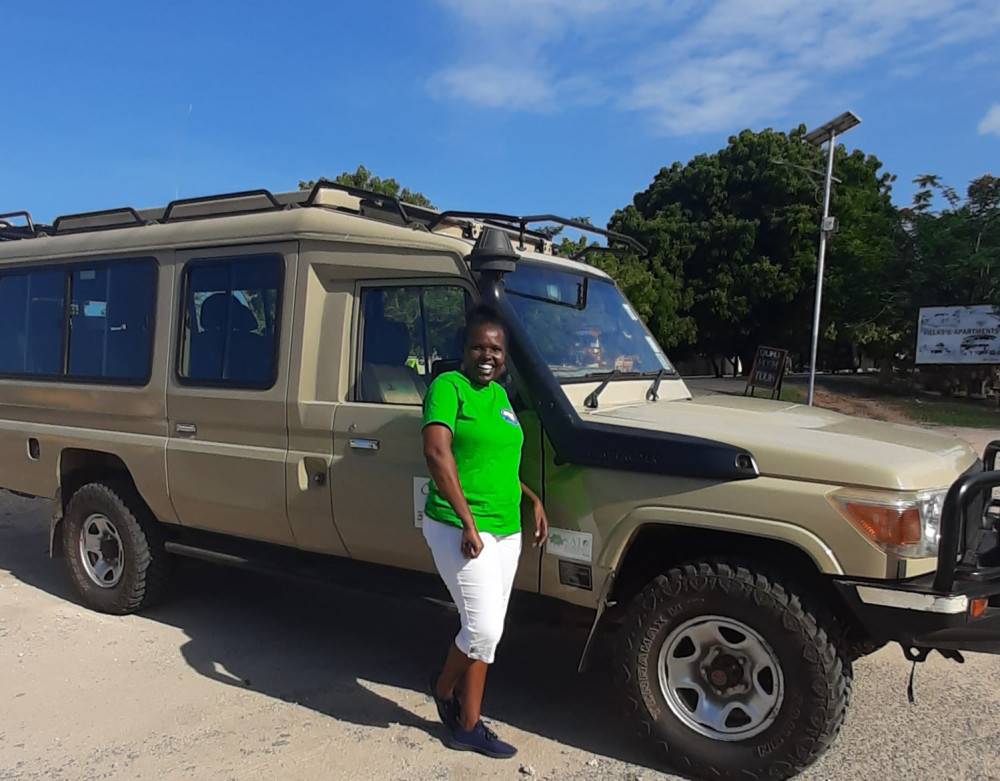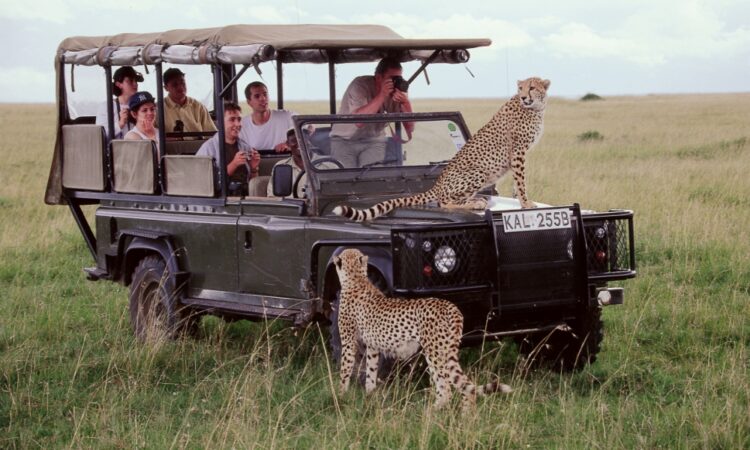Excellent Advice On Choosing Airport Transfer To Mombasa
Excellent Advice On Choosing Airport Transfer To Mombasa
Blog Article
What Safety And Security Concerns Should I Consider Before Going To Mombasa, Kenya For A Vacation?
It is crucial to be aware of the safety and security issues when visiting Mombasa in Kenya. This will guarantee a trouble-free and enjoyable excursion. Remember these essential factors:
1. General Safety
Keep yourself informed. Stay up-to-date with local news and travel advisories from your country of residence.
Sign up at the Embassy of your choice.
2. Health Precautions
Vaccinations: Ensure you are current with your routine vaccinations. You may also want to think about additional vaccines like Hepatitis A, Hepatitis B, Typhoid, and Yellow Fever.
Mombasa's malaria has become endemic. Utilize antimalarial medicine as well as insect repellents. Stay in bed under mosquito nets. Wear long sleeves.
Food and water safety Beware of eating ice, and drink bottled or boiling water. Eat well-cooked foods. Street food should be avoided.
3. Personal Security
Avoid walking alone at night Make sure you stay in areas that are well-lit and well-populated. Avoid walking on beaches at night or in quiet areas.
Protect Your Assets from Vandalism Secure Your Valuables - Use hotel safes to protect cash, passports and other important items. Do not display expensive items such as electronic devices or jewelry.
Use Reputable Travel: Select certified taxis and ride-hailing firms or take a ride offered by the hotel. Avoid taxis that are not clearly marked.
4. Local Laws and Customs
Be respectful of local culture. Dress modestly when visiting religious sites. Be aware of local customs and beliefs.
Kenya has strict drug laws and harsh penalties. Avoid illegal drug use.
Photographers should always ask for permission before taking photographs of military personnel or government structures, particularly in rural areas.
5. Beach and Water Safety
Safe swimming requires paying attention to the local guidelines on currents and conditions. Swim in designated areas.
Marine Life: Be mindful of marine animals like jellyfish and Urchins. Walking on the beach requires appropriate footwear.
6. Crime Prevention
The petty crime of bag snatching as well as pickpocketing is commonplace, particularly in areas with a lot of people. Be vigilant and keep all your valuables within reach.
Avoid strangers who appear to be offering excessive assistance or offer deals that sound too appealing. Make sure to use authorized tour operators.
Emergency Contacts: Learn the emergency numbers for your local area: Police (999) (999), Fire (999), and Ambulance (999). Keep the contact information of your country's embassy or consulate on hand.
7. Natural Hazards
Weather: Mombasa enjoys a tropical climate that can lead to floods and heavy rainfall. This is particularly true during the rainy seasons of April-June and between October and November. Be aware of weather forecasts.
Sun Protection Sun Protection: Wear hats and apply sunscreen to protect yourself from the sunburn and heat exhaustion.
8. Travel Insurance
Comprehensive coverage: Make sure your travel insurance policy covers medical emergencies, as along with theft, loss and disruptions to travel. Check that your policy provides protection for any activities you are planning to engage in, for example water sports.
When you keep these security and safety considerations in mind, you will be able to more comfortably enjoy your time in Mombasa without worry. View the recommended Sgr transfer to Mombasa Airport for site advice including kenya safari holiday packages, safar kenya, tours and travel company in kenya, holiday packages mombasa, mombasa tour packages, mombasa packages, tour and travel company, africa in kenya, kenya safaris, beach in mombasa and more.
What Is The Cultural Sensitivity I Must Be Aware When Traveling In Mombasa Kenya On A Holiday?
The importance of cultural sensitivity is paramount when traveling to Mombasa Kenya to enrich your experience. Consider these key factors:
1. Be respectful of local dress codes
Mombasa is home to a significant Muslim populace. It's respectful to dress modestly in public spaces such as religious sites, mosques, and local neighborhoods. This means that you need to dress in a modest manner, covering your chest, shoulders as well as your knees and legs.
Beachwear - Swimwear is a good option to be worn at the beach, but you should wear a hoodie when you go to restaurants or shopping nearby.
2. Religious Sensitivity
Visiting Mosques. When you visit a mosque of worship, you must first seek permission. Also, dress modestly. Women must wear a head covering, and everyone must take off their shoes when entering the mosque.
Prayer Times: Be aware of the five daily prayer times and make sure you are respectful at these times, especially if you are near an Islamic mosque.
3. Photography Etiquette
Ask for permission to take photos, especially in rural settings or traditional settings. Some people feel uncomfortable or may believe that the photos are intrusive.
Photographs in restricted areas should not be taken of sensitive locations such as military sites or government structures. Also, avoid certain cultural areas in which photography is not permitted.
4. Social Interactions
It's essential to greet your fellow citizens courteously. Swahili greetings are a good example "Jambo". Handshakes are generally accepted by both genders but for Muslim women it's acceptable to wait for their hands to be extended first or greet verbally.
Respect your privacy. Be careful of physical contact.
5. Cultural Taboos and Cultural Norms
Public Exhibits of Love are viewed as a snub.
Left Hand Usage - Traditionally, the left hand was considered dirty. Use your right for eating, greeting and exchanging goods or money.
Foot: It's disrespectful to show the soles of your feet or move your feet toward other people.
6. Language and Communication
Basic Swahili: Learning a few fundamental phrases in Swahili will be a great way of showing respect and building rapport with locals. Common phrases include "Asante" (Thank for your time) as well as "Habari" (How are you? ).
Politeness - Make sure you are polite and patient when you communicate. Kenyans appreciate courteous and respectful interactions.
7. Respect for Local Customs
Respect for the customs and ceremonies of the past. If you have been invited to attend a local celebration, be aware and be respectful of your hosts.
Bargaining can be commonplace at markets and in local shops. Just remember to do it respectfully and with the right amount of humor. It's more of a tradition than a confrontation.
8. Alcohol and Smoking
There is alcohol available to drink, but it must be done so in a discrete manner. Beware of public drinking.
Smoking is usually not permitted in public spaces. There are designated smoking areas.
9. Environmental Respect
The act of littering is a serious crime. Take care to respect wildlife and natural areas.
Conservation: Contribute to conservation efforts and respect local wildlife and habitats. Do not purchase products derived of endangered species.
10. Supporting Local Communities
Local Businesses: Support local businesses, artisans and markets to positively contribute to the local economy.
Responsible Tourism: Choose environmentally friendly, community-based and sustainable tourism alternatives that help the local community.
It is possible to increase your understanding of your local culture by observing these guidelines to be sensitive to culture. View the most popular kenya tours and safaris for blog info including mombasa travel agency, tours & safaris, tour firms in kenya, kenya travel, african safari tours kenya, tour firms in kenya, mombasa beach kenya, kenya africa travel, safari a nairobi, trips to kenya safari and more.
What Financial Planning Considerations Must I Be Aware Of Before I Travel To Mombasa Kenya?
If you are contemplating an excursion to Mombasa, Kenya be sure that you plan your finances carefully. It will guarantee that your trip is enjoyable. Here are a few key financial guidelines to keep in mind:
1. Budgeting
Accommodation: Do your homework and book your accommodation in advance. Prices for lodging can vary based on the area and type.
Include transportation costs such as taxis, flights and matatus (local transportation) and car rentals.
Food and Dining Budget: Includes eating out, snacks and other meals. Costs vary from budget-friendly local eateries to expensive restaurant chains.
Plan your activities and tours: Include the cost of entry fees, guided tours and other activities, such as safaris, water sports and cultural tours.
2. Currency and Exchange Rates
Kenyan Shillings is the local currency. Be aware of the current exchange rate.
Currency Exchange: Change money at reputable banks, currency exchange bureaus, or in your hotel. Do not exchange money on the streets.
ATMs: ATMs are readily available in Mombasa. Make sure that your card will work for international withdrawals.
3. Payment Methods
Cash: Always have cash on hand to pay for items of a small amount or tips, and also in establishments that accept credit cards.
Most major credit cards are accepted in restaurants, hotels and even larger retail stores. Inform your bank as soon as you know the plans you have in mind so you can ensure that your card is not blocked.
Mobile Payments M-Pesa, an online payment system widely utilized in Kenya. This is particularly useful to local SIM cards.
4. Save money with these cost-saving tips
Travel off-season: Traveling in the shoulder or low season (April to June, and from October to November) will save you cash on accommodation and flights.
Book Early to Get the Best Deals on Flights accommodation, tours, and flights.
Local Eateries. There is a chance to enjoy an authentic dining experience in local eateries as well as food stands.
5. Tipping
Standard practice: Tipping is a common practice in Kenya. A standard tip of 10% is expected in restaurants, even if the meal is not included. If you wish, you can tip drivers, hotel staff and guides.
The amount: Small tips in local currency are highly appreciated. Housekeepers can be rewarded with a tip of KES100 and porters KES50-100 for each bag.
6. Emergency Funds
Reserve funds: Create an emergency reserve and have additional funds in the form of a credit or debit card in case of unexpected costs.
Travel Insurance: Purchase an insurance policy that is comprehensive to cover medical emergencies and cancellations of travel plans, as well as theft or loss of personal items.
7. Security
Hotel safes are a great place to store important documents like cash, passports, and other important items. Avoid ATMs at night.
Avoid carrying large amounts Do you have huge amounts of cash? Divide your credit cards and cash between the wallet and a place which is secure.
8. Local Transactions
Local markets are a common location to shop. In a respectful and humorous manner Try to bargain an affordable and fair price.
Receipts: Store receipts for big purchases. Budget tracking and dispute resolution may benefit from this.
9. Understanding Fees
ATM and bank fees: Check with your bank about fees for international withdrawals. Certain ATMs will charge an additional fee when you use a foreign card.
Currency Conversion Fees. Pay attention to any currency conversion charges imposed by your bank if use a credit card or debit card overseas.
If you manage your finances properly, you'll be able enjoy an enjoyable vacation without hassle and manage your expenses effectively. Follow the top rated transfer to Diani for more examples including kenya tourism, kenya holiday packages, tours & safaris, safari excursions, mombasa safari packages, mombasa travel agency, mombasa safari packages, mombasa tours, african safari excursions, kenya beach and safari holiday and more.